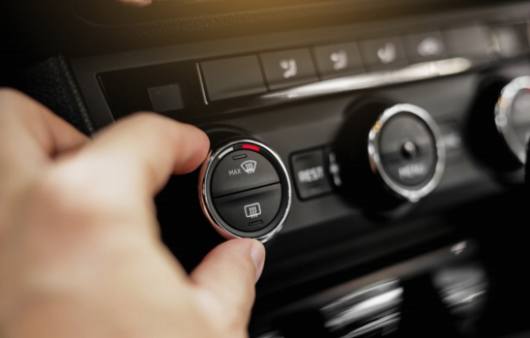Picture yourself driving on a hot summer day, the sun beating down on your car as you cruise down the highway. You reach over to turn on the air conditioning, only to be met with warm air blowing out of the vents. This may be a sign that your car's air conditioning system is leaking. Understanding the signs, causes, diagnosis techniques, repair solutions, and preventive measures for air conditioning leaks in cars can help you stay cool on the road. Learn more about how to keep your car's AC system running smoothly and efficiently with our comprehensive guide.

Understanding Car Air Conditioning System
Car air conditioning systems work by drawing in outside air, removing heat and moisture from it, and then blowing the cooled and dehumidified air back into the vehicle. The system consists of several components including the compressor, condenser, evaporator, expansion valve, and refrigerant. The compressor pressurizes the refrigerant gas, which then flows to the condenser where it releases heat. The refrigerant moves on to the evaporator where it absorbs heat from the air inside the car, cooling it down. The expansion valve regulates the flow of refrigerant throughout the system. Refrigerant is crucial to the operation of the AC system, as it is the substance that absorbs and releases heat to create the cooling effect. It is important to keep the refrigerant at the proper levels for the system to function correctly.
Signs of Car AC Leaks
One of the most obvious signs of a car air conditioning leak is a noticeable decrease in cooling performance. If you find that your car's AC is not blowing cold air or is taking longer to cool down the interior, it could be a sign that there is a leak in the system. Another sign to look out for is a hissing sound coming from the AC vents when the system is turned on. This could indicate that refrigerant is escaping from the system. Additionally, you may notice oily residue around the AC components, which can be a sign of a leak. If you experience any of these symptoms, it is important to address the issue promptly to avoid further damage to your car's air conditioning system.
Common Causes of Air Conditioning Leaks in Cars
There are several common causes of air conditioning leaks in cars, including:
1. Damaged or worn out seals
2. Corrosion or damage to the condenser or evaporator
3. Clogged or blocked drain tubes
4. Leaking refrigerant hoses or connections
5. Faulty compressor
6. Overheating of the system
7. Accidental punctures or damage to the AC system components.
DIY Diagnosis Techniques for AC Leaks
When it comes to diagnosing air conditioning leaks in your car, there are a few DIY techniques you can use to pinpoint the source of the problem. One common method is to visually inspect the AC system components for any signs of leakage, such as oil stains or wet spots. You can also use a UV dye kit to help identify leaks by adding the dye to the AC system and using a UV light to locate any leaks.
Another DIY technique is to check the refrigerant levels in your AC system using a pressure gauge. Low refrigerant levels can indicate a leak in the system. You can also conduct a leak test by adding a refrigerant leak detector to the AC system and running the system to see if any leaks are detected.
Additionally, you can use a soap and water solution to check for leaks in the AC system. Simply apply the solution to the AC system components and look for bubbles, which indicate a leak. Keep in mind that these DIY techniques can help you identify potential AC leaks, but professional repair solutions may be necessary to properly fix the issue.
Professional Repair Solutions for Car AC Leaks
When it comes to professional repair solutions for car air conditioning leaks, it is important to seek the expertise of a qualified mechanic or automotive technician. These professionals have the knowledge and experience to accurately diagnose and repair any issues with your car's AC system. Common repair solutions for car AC leaks may include replacing damaged or worn out seals, hoses, or O-rings, repairing leaks in the evaporator or condenser, or recharging the refrigerant levels in the system. It is important to address AC leaks promptly to prevent further damage to the components of your car's air conditioning system.
Preventive Measures to Avoid Future AC Leakage
One of the most important steps is to regularly check and maintain your AC system to ensure that it is functioning properly. This includes checking for any signs of leaks, such as unusual odors or decreased cooling capacity, and addressing them promptly.
Additionally, it is crucial to have your AC system serviced by a professional regularly. This includes having the refrigerant levels checked and topped up, as well as ensuring that all components are in good working condition. Regular maintenance can help identify and address any potential issues before they escalate into larger problems.
Another important preventive measure is to protect your AC system from external damage. This can involve parking in shaded areas to prevent overheating, as well as avoiding rough driving conditions that can put strain on the AC components. Additionally, keeping your car clean and removing any debris from the AC vents can help prevent blockages and leaks.
By taking these preventive measures and staying proactive in maintaining your car's air conditioning system, you can help avoid future leaks and ensure that you stay cool and comfortable on the road.
